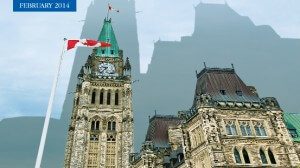Canada’s Auditor General has highlighted the growing use of tax expenditures in his latest report – a topic the Macdonald-Laurier Institute has covered in detail.
On Tuesday, April 28, Michael Ferguson released his latest report on the spending of the Canadian federal government.
It found that the government failed to “adequately manage the tangled web of tax exemptions, deductions and credits the Conservatives have woven throughout the tax system in successive budgets”, writes John Ivison in the National Post.
The Macdonald-Laurier Institute examined the issue of tax expenditures last year in a report by Munir Sheikh, the former Chief Statistician of Canada.
Sheikh found that accounting for tax expenditures as part of the federal government’s overall spending reveals a dramatically bigger government than when one considers only program spending. But tax expenditures can be seen as program spending by other means.
Sheikh also found a serious lack of accountability and transparency for the effects of tax expenditures.
“This raises the question of whether or not governments should rely on tax expenditures to achieve their policy goals”, writes Sheikh.
 There are appropriate circumstances to use tax expenditures, Sheikh observes. However there are also many drawbacks, such as:
There are appropriate circumstances to use tax expenditures, Sheikh observes. However there are also many drawbacks, such as:
- Increased complexity of the tax system;
- A misrepresentation of the size and cost of government;
- Ineffective reporting in the budget process;
- Lack of accountability for tax dollars spent.
He also points out that tax expenditures can be easily abused. They are easy to introduce but harder to claw back, leading to their inappropriate growth over time.
Jason Clemens, a former MLI Director of Research, also released a paper in 2012 arguing that tax expenditures cost the government billions but produce little or no benefit for the country.
He also authored an op-ed on the subject for iPolitics urging the government to introduce tax reform in that year’s budget.




